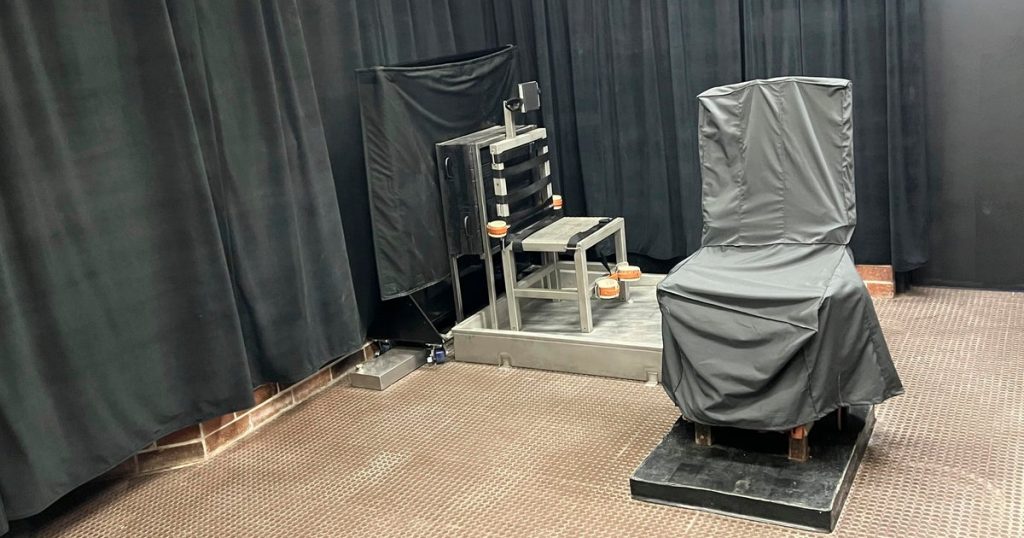A South Carolina man, Mikal Mahdi, was executed by firing squad on Friday after being convicted of murdering off-duty police officer James Myers. This marked the second use of this rare execution method in the state within five weeks, exemplifying the state’s renewed approach to capital punishment after a 13-year pause. Mahdi’s execution raises profound questions about the application of the death penalty and the methods employed by the state.
| Article Subheadings |
|---|
| 1) Overview of Mikal Mahdi’s Execution |
| 2) The Context Behind the Firing Squad |
| 3) Case Background and Details |
| 4) Legal Proceedings and Appeals |
| 5) Impact and Future of Capital Punishment in South Carolina |
Overview of Mikal Mahdi’s Execution
At 6:01 p.m. on Friday, Mikal Mahdi was executed via firing squad, becoming the fifth inmate executed in South Carolina since September, following a significant gap in state executions over the past 13 years. Witnesses reported that Mahdi cried out and groaned after being shot, demonstrating the method’s controversial nature. He was pronounced dead just minutes later at 6:05 p.m. The South Carolina Department of Corrections stated that a three-person firing squad executed the sentence, highlighting the increasing reliance on this method in the state.
The Context Behind the Firing Squad
Historically, the firing squad has a tumultuous past, utilized for various forms of punishment ranging from military desertion to political repression throughout the last century. In South Carolina, it was recently reinstated as a viable method of execution, viewed by lawmakers as both a quicker and more humane alternative compared to lethal injections. The state has faced increasing difficulties sourcing lethal injection drugs, prompting a revival of the firing squad as a feasible option. Mahdi’s choice to face execution in this manner underscores the complexities and moral dilemmas surrounding capital punishment today.
Case Background and Details
The execution stems from the heinous 2004 murder of Officer James Myers, during which Mahdi fatally shot the officer multiple times before attempting to destroy evidence. Mahdi’s history includes violence extending beyond this murder, as he also admitted to the murder of a convenience store clerk shortly before killing Myers. His arrest occurred following a carjacking and a failed attempt to use a stolen credit card, providing insight into a troubling pattern of behavior. The horrors of the crime created a sense of urgency and pressure on the judicial system, culminating in his execution this week.
Legal Proceedings and Appeals
Mahdi faced numerous legal challenges leading up to his execution, with his final appeal being denied by both the U.S. Supreme Court and the South Carolina Supreme Court shortly before his death. Defense attorneys argued that Mahdi did not receive effective representation during the original trial, which they claimed lacked substantial character witnesses and history that could have potentially swayed the jury towards a life sentence instead. Despite these arguments, the prosecution maintained that Mahdi’s violent tendencies were evident and that his death sentence was justified.
Impact and Future of Capital Punishment in South Carolina
Mahdi’s execution marks a significant moment for South Carolina’s death penalty landscape, especially after a prolonged hiatus in capital punishments. Following the passing of legislation designed to streamline procedures for execution, the state has begun to clear its backlog of cases with several inmates nearing execution. As society grapples with evolving perceptions of the death penalty, South Carolina’s reliance on the firing squad may prompt further discussions on the efficacy and morality of capital punishment in the modern age.
| No. | Key Points |
|---|---|
| 1 | Mikal Mahdi was executed via firing squad on March 31, 2024, at 6:01 p.m. |
| 2 | His execution marked the second use of this method in South Carolina within five weeks. |
| 3 | Mahdi was convicted for the 2004 murder of Officer James Myers. |
| 4 | The execution method has been reinstated due to difficulties in obtaining lethal injection drugs. |
| 5 | Mahdi’s case highlights ongoing debates over the effectiveness and morality of capital punishment. |
Summary
The execution of Mikal Mahdi signals a revitalization of capital punishment protocols in South Carolina, thrusting the state back into national discussions about the death penalty’s role in justice. As more cases approach execution, the moral and ethical considerations surrounding such methods become increasingly pertinent, with advocates and opponents of the death penalty watching closely. The events leading to Mahdi’s execution reflect the complexities inherent in the legal system and the profound impact of violent crime on communities involved.
Frequently Asked Questions
Question: What method of execution did Mahdi choose?
Mahdi chose to be executed by firing squad rather than lethal injection or the electric chair.
Question: Why has South Carolina reinstated the firing squad as a method of execution?
The firing squad was reinstated due to increasing difficulty in obtaining lethal injection drugs, with lawmakers considering it a more humane and efficient option.
Question: How many executions have been carried out in South Carolina in recent months?
Mahdi’s execution was the fifth execution carried out since September, following a 13-year hiatus in state executions.
